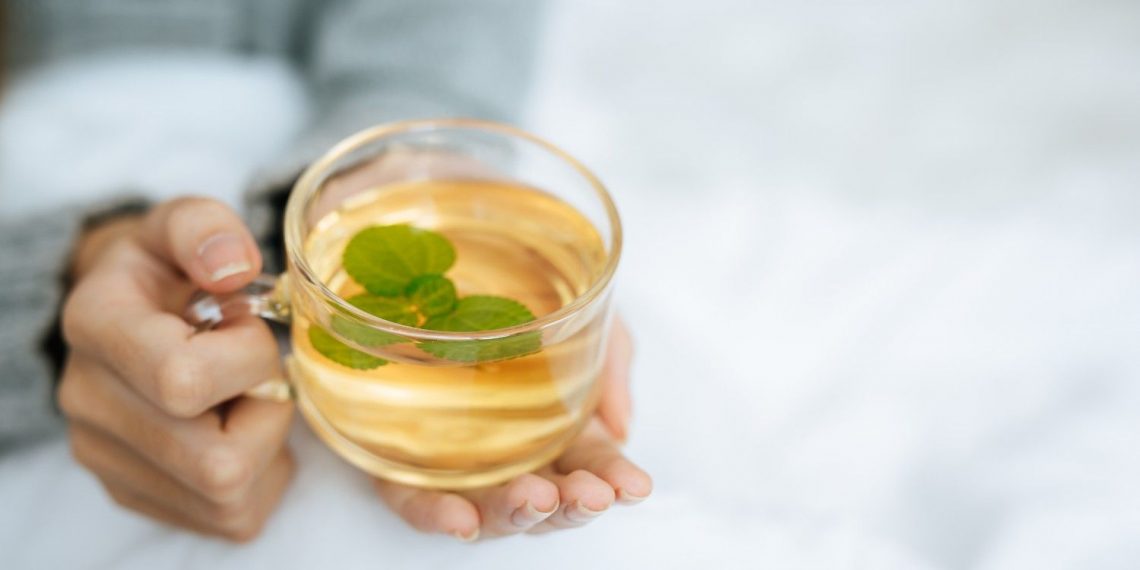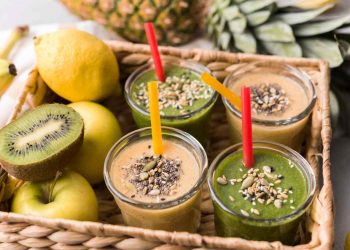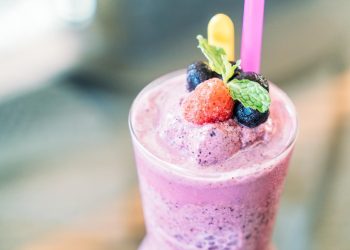Did you know that the simple act of sipping tea can enhance your brain’s focus and clarity? While coffee often steals the spotlight as the go-to drink for a quick energy boost, a variety of calming teas can provide a more balanced approach to mental clarity. Instead of jitteriness or a crash, these herbal infusions can help you maintain focus while also promoting relaxation. So, let’s dive into five calming teas that not only soothe your nerves but also sharpen your mental acuity.
Contents
1. Green Tea
The Power of L-theanine
Green tea isn’t just a refreshing drink; it’s packed with L-theanine, an amino acid that can promote relaxation without drowsiness. A study published in the journal Nutritional Neuroscience found that L-theanine can enhance cognitive performance, particularly when combined with caffeine (Haskell et al., 2008). This makes green tea a perfect balance for those looking to improve focus while staying calm.
Pros:
- Cognitive Boost: Improves attention and memory.
- Antioxidant-Rich: Contains polyphenols that protect brain cells.
Cons:
- Caffeine Sensitivity: Some people may experience jitters if they consume too much.
- Taste Preference: Not everyone enjoys the earthy flavor.
How to Enjoy It
Brew a cup of green tea for about 3-5 minutes. You can enjoy it plain or add a slice of lemon for a citrusy twist. If you’re looking for something sweeter, a hint of honey can also do the trick.
2. Chamomile Tea
The Calm Before the Focus
Chamomile tea has long been celebrated for its calming properties. While it’s often associated with sleep, it can also help clear your mind, making way for better focus. A study in the Journal of Clinical Psychopharmacology found that chamomile can reduce anxiety and improve overall mood (Amsterdam et al., 2009).
Pros:
- Anxiety Reduction: Helps to calm racing thoughts.
- Sleep Aid: Promotes better sleep, which in turn enhances daytime focus.
Cons:
- Drowsiness: Might make you too relaxed if you need to stay alert.
- Allergic Reactions: Some people may be allergic to chamomile.
How to Enjoy It
Steep chamomile flowers in hot water for about 5 minutes. For added flavor, consider mixing in a dash of cinnamon or a teaspoon of vanilla.
3. Peppermint Tea
Refreshing Focus Booster
Peppermint tea is not only invigorating; it can also enhance cognitive function. Research has shown that the aroma of peppermint can improve alertness and memory (Moss et al., 2008). So, why not sip on this refreshing tea while you work?
Pros:
- Enhanced Alertness: Great for combating mental fatigue.
- Digestive Aid: Can help soothe an upset stomach.
Cons:
- Overpowering Flavor: Some may find peppermint too strong.
- Not for Everyone: Can exacerbate heartburn in some individuals.
How to Enjoy It
Brew peppermint tea for about 5-7 minutes. If you like it sweeter, a touch of honey can complement its refreshing taste beautifully.
4. Lemon Balm Tea
The Herb That Calms the Mind
Lemon balm, a member of the mint family, is known for its calming effects. It can reduce stress and improve cognitive function, making it a great option when you need to focus. A study published in Psychosomatic Medicine indicated that lemon balm can significantly reduce anxiety and improve cognitive performance (Kennedy et al., 2002).
Pros:
- Stress Reduction: Helps alleviate anxiety and promote calmness.
- Cognitive Clarity: Can enhance memory and concentration.
Cons:
- Taste: Some may not enjoy its lemony flavor.
- Interactions: Can interact with certain medications; consult a healthcare provider if you’re on medication.
How to Enjoy It
Steep lemon balm leaves in hot water for about 5-10 minutes. You can mix in a slice of lemon for an extra zing or a bit of honey for sweetness.
5. Rooibos Tea
The Caffeine-Free Wonder
Rooibos tea is naturally caffeine-free, making it a great option for those sensitive to caffeine. It’s rich in antioxidants and can help reduce stress, which is essential for maintaining focus. A study published in the journal Food Research International highlighted the health benefits of rooibos, including its potential neuroprotective properties (Hassan et al., 2014).
Pros:
- Caffeine-Free: Ideal for late-night sipping without the worry of sleeplessness.
- Rich in Antioxidants: Supports overall brain health.
Cons:
- Flavor Profile: Some may find it too sweet or fruity.
- Availability: Not as commonly found in stores as other teas.
How to Enjoy It
Brew rooibos tea for about 5-7 minutes. It’s delicious on its own, but you can add a splash of milk or a hint of vanilla for a creamier taste.
FAQs
1. Can I mix these teas for better effects?
Absolutely! Many of these teas can be combined to enhance flavor and benefits. For example, mixing chamomile with lemon balm can create a soothing blend that promotes relaxation while improving focus.
2. How much tea should I drink for optimal focus?
Generally, 2-3 cups a day can help you reap the benefits without overdoing it. However, listen to your body; if you feel jittery or overly relaxed, adjust your intake accordingly.
3. Are there any side effects to be aware of?
While these teas are generally safe, some individuals may experience allergic reactions or digestive issues. Always consult a healthcare provider if you have concerns, especially if you’re pregnant or on medication.
4. Can I drink these teas at night?
Yes, most of these teas are calming and can be enjoyed at night. Chamomile and rooibos, in particular, are great options for winding down after a long day.
Conclusion
In our fast-paced world, finding ways to boost brain focus and clarity is essential. Calming teas like green tea, chamomile, peppermint, lemon balm, and rooibos offer a delicious and effective way to enhance mental acuity while promoting relaxation. Whether you’re preparing for a big presentation, studying for exams, or simply trying to manage daily stressors, these herbal infusions can be your trusted allies.
Experiment with these options and see what works best for you. And remember, while these teas can support your cognitive function, they’re not a substitute for a balanced diet, good sleep, and regular exercise. So grab a cup, take a moment to breathe, and enjoy the journey toward better focus and clarity.
This article is for educational purposes only and is not a substitute for professional medical advice. Always consult a qualified healthcare provider before making changes to your health routine.
References
-
Haskell, C. F., Kennedy, D. O., Wesnes, K. A., & Scholey, A. B. (2008). A double-blind, placebo-controlled trial of L-theanine on cognitive performance and mood in healthy volunteers. Nutritional Neuroscience. https://doi.org/10.1179/147683008X301514
-
Amsterdam, J. D., Li, Y., Soeller, I., & Shih, M. (2009). The efficacy of chamomile in generalized anxiety disorder: A randomized controlled trial. Journal of Clinical Psychopharmacology. https://doi.org/10.1097/JCP.0b013e3181aa1b2d
-
Moss, M., Cook, J., Duckett, P., & Duckett, P. (2008). Aromas of peppermint and lavender essential oils differentially affect cognition and mood in healthy adults. International Journal of Neuroscience. https://doi.org/10.1080/00207450701843324
-
Kennedy, D. O., Scholey, A. B., & Wesnes, K. A. (2002). Dose dependent changes in cognitive performance and mood following acute administration of Ginkgo biloba, lemon balm, and a combination of both. Psychosomatic Medicine. https://doi.org/10.1097/01.PSY.0000079780.62623.51
-
Hassan, S. T. S., Sulaiman, S. A., & Ali, H. M. (2014). Rooibos (Aspalathus linearis) tea: A review of its health benefits. Food Research International. https://doi.org/10.1016/j.foodres.2014.01.028
Get Your FREE Natural Health Guide!
Subscribe now and receive our exclusive ebook packed with natural health tips, practical wellness advice, and easy lifestyle changes — delivered straight to your inbox.














